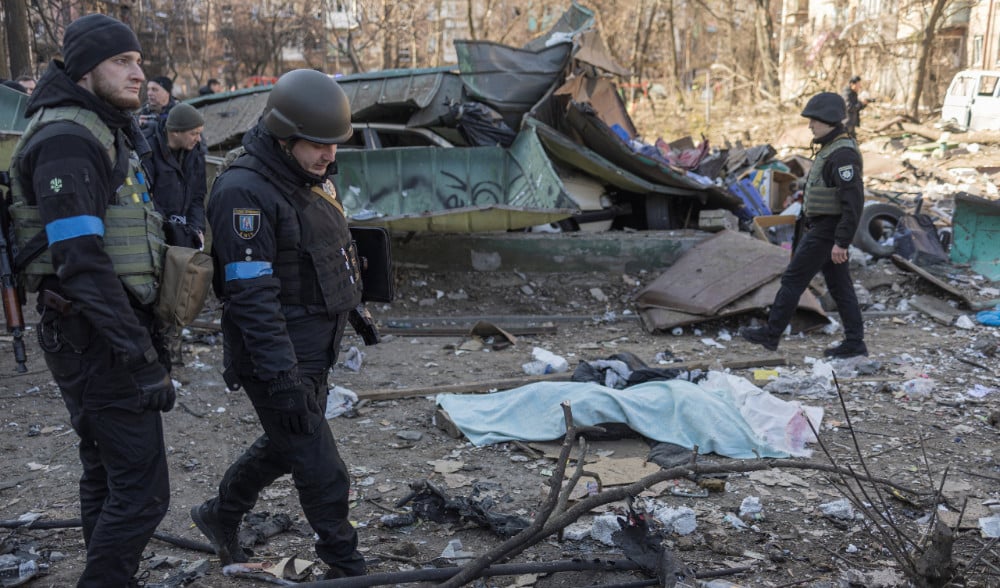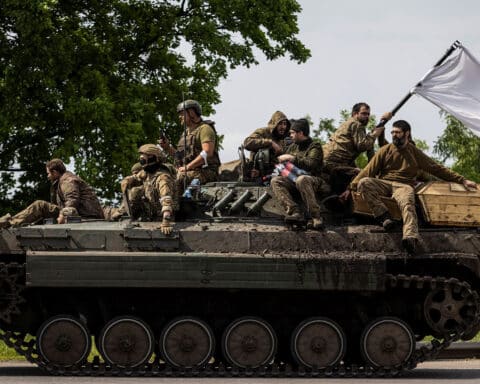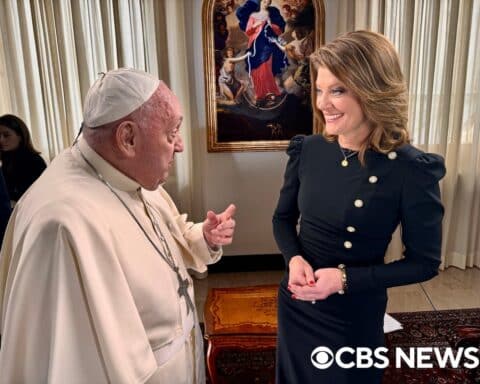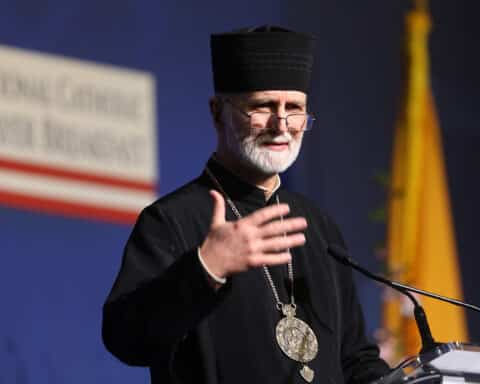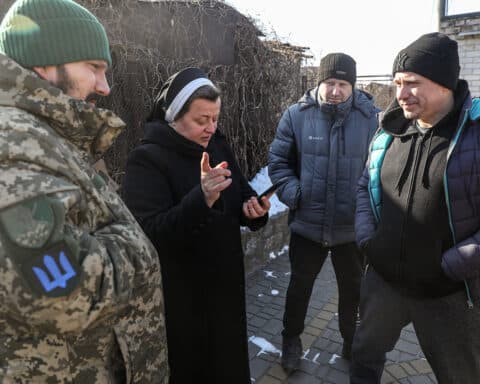As stories of Russian atrocities against Ukraine fill headlines and social media feeds, Ukraine President Volodymyr Zelenskyy’s plea for NATO to declare a no-fly zone over Ukraine has begun to fall on sympathetic ears. Accounts of Russian attacks on hospitals and civilian targets seem to cry out for the United States and, especially, Western European nations to become more active in assisting Ukraine’s resistance to the Russian invasion. Some may reason that a no-fly zone is an intermediate stage between indirect aid — such as supplying weapons, information technology and humanitarian aid — and directly engaging in war with Russia.
But like many moral questions, the answer is not as clear as it might seem, either in support or opposition to the declaration of a no-fly zone. As with any question of military intervention, Catholic moral theology invokes the principles of just-war criteria. While some theologians have made plausible arguments that modern technological weapons and tactics put a strain on the efficacy of just-war criteria, they remain a useful heuristic tool for analyzing situations such as this.
The Catechism of the Catholic Church succinctly summarizes four principles of just-war theory in Section 2309. But before the elements are listed, the Catechism issues an important preliminary caveat. Section 2307 declares that “the Fifth Commandment forbids the intentional destruction of human life.” There’s more to this declaration than might meet the eye. It doesn’t merely forbid intentional destruction of “innocent” human life, but rather human life without a modifier. Put another way, the Fifth Commandment forbids forming the intention of taking a human life. Full stop.
Thus, any action that might result in the foreseeable or predictable destruction of human life must have some intended end other than killing. Where the taking of human life seems like a foreseeable and predictable effect of some action, we have to ask what the intended action is. This serves as an important check against impetuous retaliation. If the intended end is not clearly something other than the destruction of human life, we may not commit an act that will result in that destruction. Intention is not foreseeability or predictability; it may be the case that a proper intention may entail foreseeable death. But intentionality is of supreme importance for the moral evaluation of any military hostility.
Another caveat implied by Section 2308 of the Catechism is that, even where the intention is proper, we must be guided by a very strong presumption against waging war or joining war. That does not necessarily imply that engaging in war is always immoral, of course. But it does reiterate the very strong presumption against. And this presumption forbids ever waging an aggressive war. While determining what is “defensive” and “aggressive” might sometimes be difficult, an aggressive war is always forbidden. And, once again, the strong presumption against war counsels that we are clear in our intentions.
With that caveat, the four just-war criteria are: (1) The damage inflicted by the aggressor on the nation or community of nations must be “lasting, grave, and certain”; (2) Other attempts to end the aggression have been “impractical or ineffective”; (3) The prospect of success must be highly probable; and (4) The military intervention must not cause evils more grave than those to be eliminated. All four criteria must be met. The failure of any defeats the argument for going to war.
The first criterion seems to be clearly met, and need not take any discussion. The damage is certain, grave and has lasting implications. (The immoral execution of the war by Russia aggravates the situation, but it is not a criterion itself. Decisions must be made on sober principles, not moral outrage.)
The second is not as clear. It appears that the serious and extensive sanctions are having a significant impact both on Russia’s ability to wage war and on the popularity of the war in Russia. Reports of Putin’s eroding support at home have seemed credible. In other words, it is not clear that we can say that sanctions and diplomacy have been ineffective. This is a highly contingent standard, so it may counsel patience for now, which seems to be NATO’s own judgment.
Whether a no-fly zone over Ukraine meets the third criterion is also unclear. If NATO were to declare a no-fly zone, the prospect of its effectiveness must be more than speculative. NATO must be prepared to enforce it with sufficient force that it will have an overwhelming probability of success at shortening the war. If NATO does not have the current strategic ability or the moral will diligently to enforce it, declaration of a no-fly zone will aggravate Russian determination without deterring Russian aggression.
Nor is it obvious that the declaration of a no-fly zone, and the military operations necessary to enforce it, would satisfy the final just-war criterion. Would the declaration of a no-fly zone eliminate Russian incursions or create a bloodier, more violent engagement, in the sky and on the ground? And would it provoke Putin to resort to the unthinkable use of chemical or nuclear weapons? I don’t know the answer to that question. But if NATO nations do not have a clear answer, they must refrain until they do.
Perfect knowledge is not required; nor is absolute probability of success. But the drastic step of a no-fly zone must be taken with a high degree of moral confidence that these criteria are met.
Kenneth Craycraft is the James J. Gardner Family Chair in Moral Theology at Mount St. Mary’s Seminary and School of Theology in Cincinnati.

